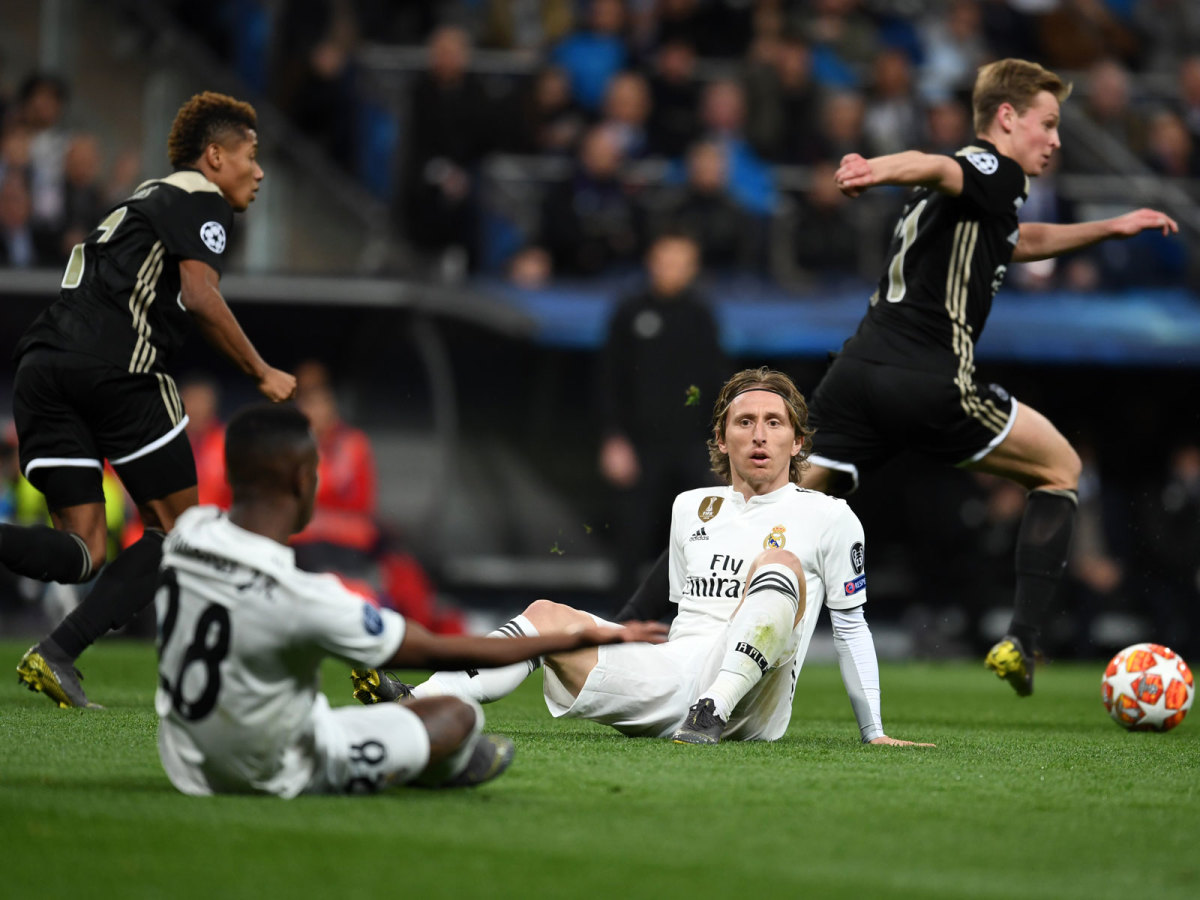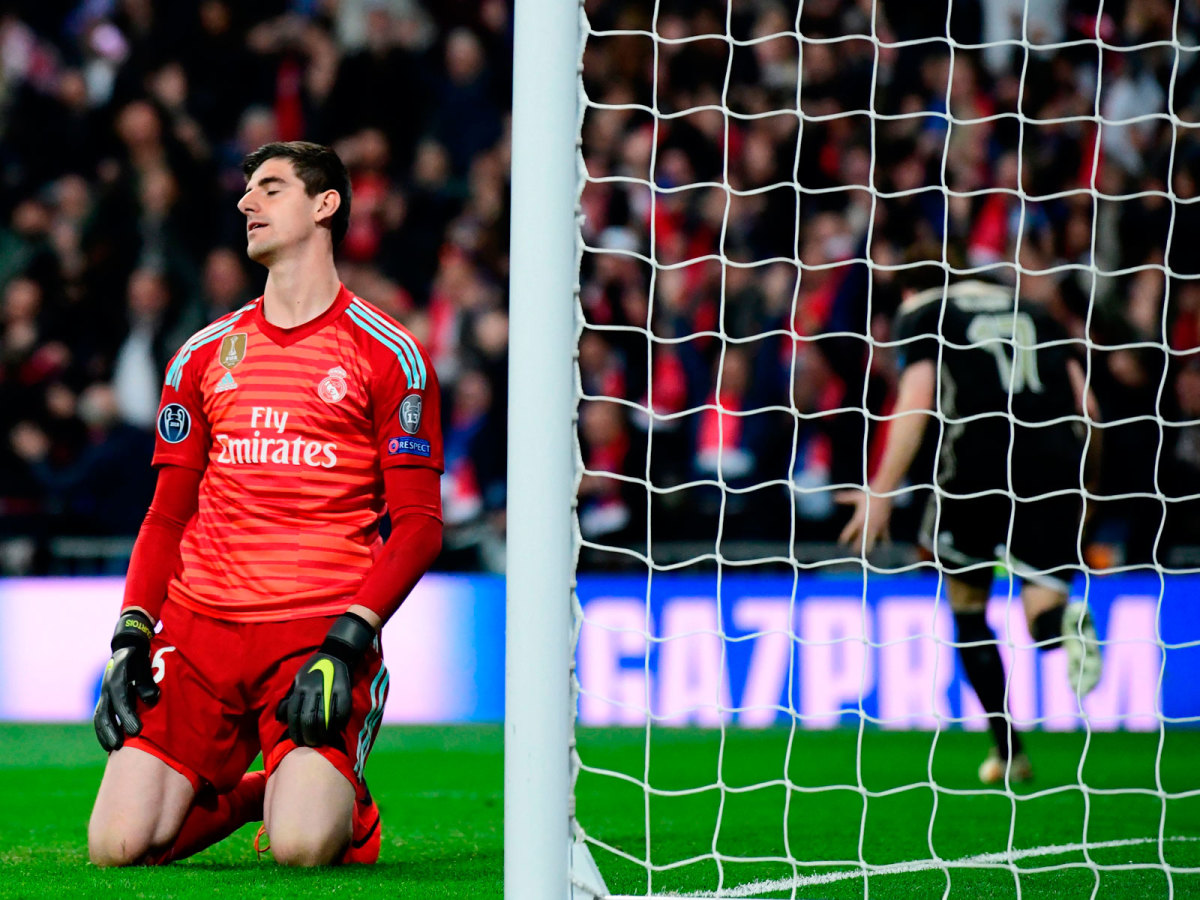Real Madrid's Collapse a Product of Policy, Planning, Ego and Chaos

In three home games over a week, Real Madrid’s season collapsed. First there was defeat to Barcelona in the second leg of the Copa del Rey semifinal. Then there was a league defeat to Barcelona that effectively settled the title race. And then, most embarrassingly of all, there was Tuesday’s 4-1 home defeat to Ajax in the Champions League, a shocking result that made Madrid the first team in Champions League history to win the first leg of a knockout tie 2-1 away from home and still go out. There is near certainty now that Santiago Solari will not be kept on as coach, but it would be ludicrous to think that he is the only problem at the club.
The performance against Ajax was thoroughly spineless. It wasn’t just that there was a complacency, characterized by the way Sergio Ramos had deliberately picked up a yellow card toward the end of the first leg to invoke a suspension he could serve in a game he clearly felt was a formality (and thus clean his slate ahead of the quarterfinals). It was the fact that Madrid, tactically, was an amorphous mess. Dusan Tadic, Frenkie De Jong and Donny van de Beek were all excellent, but they all had a lot of space in which to be excellent.

The first indication that something was seriously wrong came in the bowels of the Olympiyskyi Stadium in Kiev in May last year shortly after Real Madrid had beaten Liverpool to claim its third Champions League title in a row. First Gareth Bale and then Cristiano Ronaldo suggested that they were unhappy and would be looking to leave. Five days later, Zinedine Zidane resigned as coach.
It subsequently turned out that Zidane felt there was major rebuilding required and that the club was unready to fully commit to that. He was right. The appointment of Spain manager Julen Lopetegui to replace Zidane was a farce from start to finish, a decision that managed to ruin Spain’s World Cup, Real Madrid’s season and, at least in the short term, a coach’s career. He lasted 14 games.
But as shambolic as that was, Lopetegui was a side issue. It’s a curious thing to say of a team that has just won three Champions Leagues in a row, and four in the last five seasons, but it’s been a long time since Real Madrid has actually been good. At the end of this season, Madrid will have won three league titles in 11 years. For a club of its stature, that is a poor return, and would have been even before the superclub era that has extended its financial advantages. Madrid hasn’t endured such a poor run in Spain since its first title under Santiago Bernabeu’s presidency in 1953.
Perhaps that is explicable to an extent by saying Madrid has come to focus on Europe, but the inability, despite vast resources, to put together a squad that has consistently been able to compete over the span of a league campaign is significant. Rather than looking to control games, Madrid has relied on winning the moments, believing–rightly, as it turned out–that when it really mattered, Ronaldo would find a goal, Luka Modric would find a pass, Ramos would find a way of stopping an opponent.

The loss of Ronaldo has hit Madrid particularly hard. It turns out it wasn’t that his egotism was stopping the system from functioning–but that there was no system to speak of. Modric and Ramos are both beginning to look their age. Toni Kroos has continued his poor World Cup form. Marcelo has faded from view almost entirely. Bale has not blossomed into the space left by Ronaldo and seems now to have become the scapegoat of the crowd.
Yet this time last year the picture seemed more positive. The policy of signing young talent rather than established stars seemed a sensible one, and in Lucas Vazquez, Marco Asensio, Vinicius Junior, Dani Ceballos, Sergio Reguilon and Brahim Diaz, there is perhaps a core that could endure for a decade. There are also, though, a number of key players on the wrong side of 30, at least some of whom have developed unhelpfully large egos.
Madrid is a club fatted on superclub wealth. With enough resources and enough good players, the downside is never too low while there is the potential for great success in one-off games. But problems have been allowed to run unchecked. The imbalance in the squad is the result of years of failed planning (the present policy may actually be the right one; it’s what came before that was the issue). It might have been very different had Jose Mourinho not forced out Jorge Valdano, who was de facto sporting director, as part of his politicking while coach. There is nobody currently in that role, nobody liaising between the president, Florentino Perez, and the coaching staff, nobody to guide a long-term policy.
The result is chaos. Madrid has ridden that for longer than it probably should have, held aloft by the goals of Ronaldo even as the general pattern of play declined. But incoherence is not sustainable, and the end result is what has happened in the past week.
